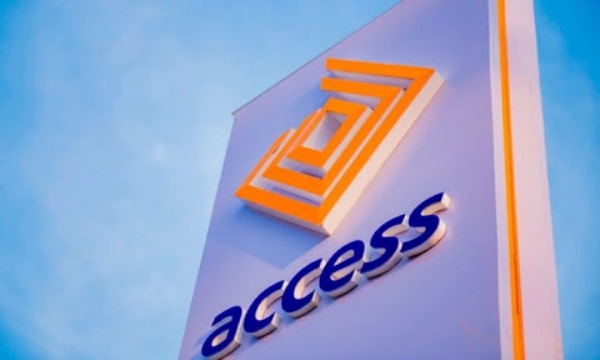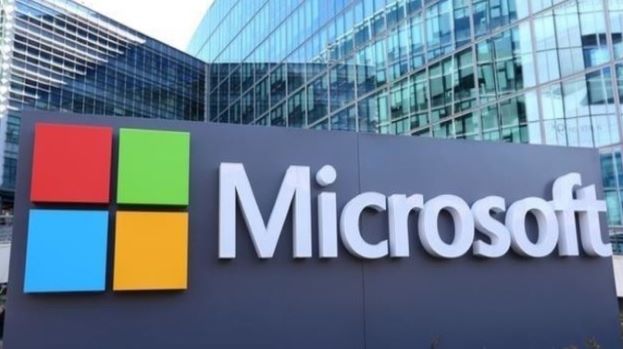News
Access Bank, Edtech Firms Equip Youngsters with STEAM Skills

Foremost financial institution, Access bank Plc. in collaboration with four indigenous edtech companies have channeled efforts and resources towards promoting and inspiring STEAM education among youngsters.

STEAM which stands for Science, Technology, Engineering, Arts and Mathematics education, provides essential 21st-century knowledge to equip students with future-ready skills for innovative and tech-driven workforce.
The bank’s commitment to this cause was further demonstrated as a major sponsor at the 2nd ‘STEAM Fun Fest conference and exhibition’, that held at Landmark event center, Victoria Island, Lagos.
The initiative was birthed through the collaborative effort of Jadesola Adedeji of STEM-MET, Uchenna Onwuamaegbu-Ugwu of Edufun Technik, Titi Adewusi of 9ijakids and Wale Ogunjobi of SabiTeach.
The conference themed, “STEAM: From Classroom to the Real World,” gathered no fewer than 6000 children and led participants from classroom experience to a world of reality in an interactive and fun-filled environment.
Participants from across public and primary schools were equipped with relevant practical skills such as robotics, coding, engineering, design, science experiments, and drone technology to complement their classroom learning.
Featured Masterclasses included seasoned speakers including Tarebi Alebiosu, Founder, QShop Tech Inc.; Nkemdilim Uwaje Begho, CEO of Future Softwares; Hugo Obi, Founder of Maliyo Games, Charles Emembolu, Co-founder of Tech Quest Academy and Anita Odiete, Lead, Customer Success Strategy of Flutterwave, amongst others.
Remarking, Head Sustainability at Access Bank Plc., Omobolanle Victor-Laniyan restated the bank’s commitment to children’s development as a child’s friendly and future-oriented institution.
“We are passionate champions of educational causes and we are pleased to be a lead sponsor of the 2022 STEAM Fun Fest that equipped over 6,000 children who are the next generation, with the skills needed to succeed in the future.
“We believe that STEAM education is indispensable to the sustained growth and stability of the nation’s economy and in building a workforce that is relevant for the future.”
Speaking on the programmme, one of the organisers and Co-Founder of 9ijakids, Titi Adewusi stated that early exposure to skills and knowledge of STEAM would prepare children to be successful innovators now and in future.
She said, “This is an opportunity to expose children to the future of work as we know that technology is going to account for 75% of future jobs and to ensure that children are aware of this. We must expose them to a world beyond mathematics, English, and science.”
One of the participants, Agnes Adewusi from Alimosho Senior Grammar School commented that the experience was worth the while, adding that she had a detailed grasp of robotics skills and also caught fun.
News
Ghana Tasks Africa On Increased Cyber security Investments

Ghana has urged other African countries to boost investment in cyber security tools and capacity building.
Samuel Nartey George, minister for communication, digital technology, and innovation, made the call while delivering a lecture on Cyber security – Ghana’s Policy and Readiness at the Ghana Armed Forces Command and Staff College as part of the ongoing Defence Management Course 25.

In his presentation, he urged other African countries to establish cyber security resilience while acknowledging the financial and political trade-offs, but emphasised the long-term value of digital security in defending national sovereignty.
The Ghana minister’s call for increased investments comes as analysts argue that cyber security should not be considered as an afterthought, a compliance checkbox, or a last-minute technical fix.
They believe that politicians, technology leaders, and businesses must collaborate to develop governance frameworks that address Artificial Intelligence (AI)-specific threats, invest in secure-by-design solutions, and build local cyber security skills on a scale.
In the case of George, he gave a data-driven presentation on Ghana’s digital transformation agenda and cyber security readiness, stating that cyber security was the new frontier of national security and defence.
According to him, all traditional defence mechanisms today rely on secure digital infrastructure.
The minister’s presentation covered key thematic areas: the emergence of the digital economy; threats to the digital landscape, Ghana’s journey toward a secure and resilient digital future and a national roadmap for further advancement.
He also demonstrated how government digitisation efforts—such as e-parliament, e-justice, e-passport, e-procurement, e-immigration and smart workplace platforms—are reshaping governance, judicial processes, and public service delivery.
Additionally, George disclosed recent successes in cyber-intelligence operations involving collaboration with international partners like the FBI and INTERPOL, which led to arrests and asset recovery tied to transnational cyber-crime syndicates.
“Cyber fraud is real, and Ghana has made significant strides in arresting cyber-criminals through advanced digital forensics, AI tools, and coordinated intelligence sharing,” he said.
George also revealed ongoing work on updating Ghana’s cyber security laws to address emerging threats including AI abuse, terrorism financing, deepfakes, and online child exploitation.
To fellow African states, he cautioned: “Cyber security doesn’t win elections, but its absence can cost lives and state stability. We must prioritise it.”
George asked that they enhance their investment in cyber security.
News
Microsoft to Cut About 4% of Jobs Amid Hefty AI Bets

Microsoft, will lay off nearly 4% of its workforce, the company said on Wednesday, in the latest job cuts as the tech giant looks to rein in costs amid hefty investments in artificial intelligence infrastructure.

The company, which had about 228,000 employees worldwide as of June 2024, had announced layoffs in May, affecting around 6,000 workers. It was planning to cut thousands of jobs, particularly in sales, Bloomberg News reported last month.
The Windows maker had pledged $80 billion in capital spending for its fiscal year 2025. However, the soaring cost of scaling its AI infrastructure has weighed on its margins, with its June quarter cloud margin expected to shrink from last year.
Microsoft said on Wednesday it planned to reduce organizational layers with fewer managers and streamline its products, procedures and roles.
The Seattle Times first reported on the layoffs earlier on Wednesday. Separately, Bloomberg News reported Microsoft’s Barcelona-based King division, which makes the Candy Crush video game, is cutting 10% of its staff, or about 200 jobs.
Microsoft confirmed to Reuters that its gaming division was impacted by the layoffs, although not the majority of the unit, but did not provide further details.
Big Tech peers, which are investing heavily in artificial intelligence, have also announced job cuts.
Facebook parent Meta, earlier this year said it would trim about 5% of its “lowest performers”, while Alphabet’s, Google has also laid off hundreds of employees in the past year.
Amazon, has also cut jobs across its business segments, most recently in its books division. The company had earlier laid off employees in its devices and services unit, and communications staff.
Economic uncertainties and rising costs have triggered layoffs across sectors in Corporate America, as companies rush to streamline operations and hedge against further cost pressures.
News
Kaspersky Explains how to Protect Smart Home Devices

It is expected that by 2028, more than 33% of households worldwide will be equipped with smart home systems. Voice assistants, kitchen robots, smart lights and many other intelligent devices have become an integral part of our everyday life, transforming the way we interact with our living space.

However, with the rise of smart technology comes the need for robust protection against potential vulnerabilities. Kaspersky shares useful tips on how to look after smart home devices’ security on a daily basis, to make your home not only comfortable, but also secure.
Why do we call it “smart”?
Smart home systems integrate various devices, creating a “living” environment, enabling seamless interaction between gadgets and users. Usually, it has a central hub or controller, which acts as the brain of the smart home.
Smart home systems can include a wide variety of devices and appliances such as cameras, sensors, actuators and multiple household gadgets such as fridges, toasters, washing machines and vacuum cleaners. These devices connect with each other and other systems via the Internet.
Users can choose between different options when interacting with their smart home:
- Mobile apps that allow users to control devices, set schedules, and receive notifications even outside the house
- Voice assistants, which enable voice commands to control devices
- Web Portals and online dashboards that provide access to device settings and monitoring afterloggingin to the user’s
Comfort and ease of use are the main advantages of a smart home system. Users can set specific times for devices to perform actions, for example, turning on lights at sunset. Devices can also be programmed to respond to specific events, such as turning on the thermostat when the user arrives home.
Even TVs with built-in AI technology, which can help you to discover dishes in shows as they appear on screen, find the recipe, and then compare the products needed for its preparation with those that are in your fridge and make a shopping list doesn’t sound like a fantasy anymore.
Despite the advantages that a smart home system offers, its Achilles’ heel is the Internet connection. Connectivity of all devices to a local Wi-Fi network as well as the need to log into personal accounts makes intelligent gadgets potentially vulnerable to hacking.
There are already examples when attackers gained unauthorised access to Ecovacs robot vacuums to spy on their owners and disturb them by making loud noises and uncontrolled moves. Even an Internet-connected mattress system in theory can be hacked, making the gadget potentially unsafe to use.
The vacuum cleaner is watching you
The idea that the regular household items surrounding you every day might be sharing personal data, overhearing, or even watching you, sounds terrifying. However, there is no need to stop using your favourite gadgets. Though examples of smart home device attacks are still rare, basic security rules are essential to safely enjoy the benefits of smart technology, preventing hackers from using them against you.
- Secure your Wi-Fi network. It’s highly recommended to change the system password that many Wi-Fi routers have by default to a more complex and secure one. Here are some tips on how to create stronger passwords.
- Monitor your network regularly. Look out for any suspicious activity on your local network or even consider using specific monitoring tools like Kaspersky Wi-Fi Security Check, which alerts you if Wi-Fi security settings are weak or if there are open ports that could allow unauthorised access to your Wi-Fi or smart home devices and Smart Home Monitor, which notifies you when a new device joins your Wi-Fi network so you can disconnect it.
- Track your device’s activity. Any device’s unusual behaviour might be a signal that somebody has access to it. If you notice suspicious activity it’s recommended to change your account password (if you are logged in on the device) and check your local network traffic.
- Review the settings regularly. Less is more. Disable any unnecessary features or services on your device that could pose a risk to your privacy or security. For example, you can disable access to a device’s camera and microphone if you are not currently using these functions.
- Make rational choices. The prospect of using as many smart devices as possible seems very tempting, but remember that every new gadget increases the potential risk to your security, so choose carefully and opt for responsible manufacturers.

 E-Financial3 days ago
E-Financial3 days agoAccess ARM Pensions Advocates Ways to Boost Civil Servants’ Retirement

 E-Business3 days ago
E-Business3 days agoFirm Warns as Social Media Scams Put Users’ Data at Risk

 Telecom3 days ago
Telecom3 days agoMTN Nigeria Launches “Mega Billion Promo” to Reward Customer Loyalty and Drive Financial Inclusion

 Telecom2 days ago
Telecom2 days agoAVEVA Highlights Climate Impact Gains in 2024 Sustainability Report

 General News2 days ago
General News2 days agoAfCFTA Opens Opportunity for Logistics Sector

 E-Business3 days ago
E-Business3 days agoNigeria Ranks 3rd in Africa for Ransomware Threats –INTERPOL

 Telecom2 days ago
Telecom2 days agoALTON Explains SIM-related Services Disruption Across Mobile Networks

 General News3 days ago
General News3 days agoNELFund Warns Students Against Fake Loan Portal

























